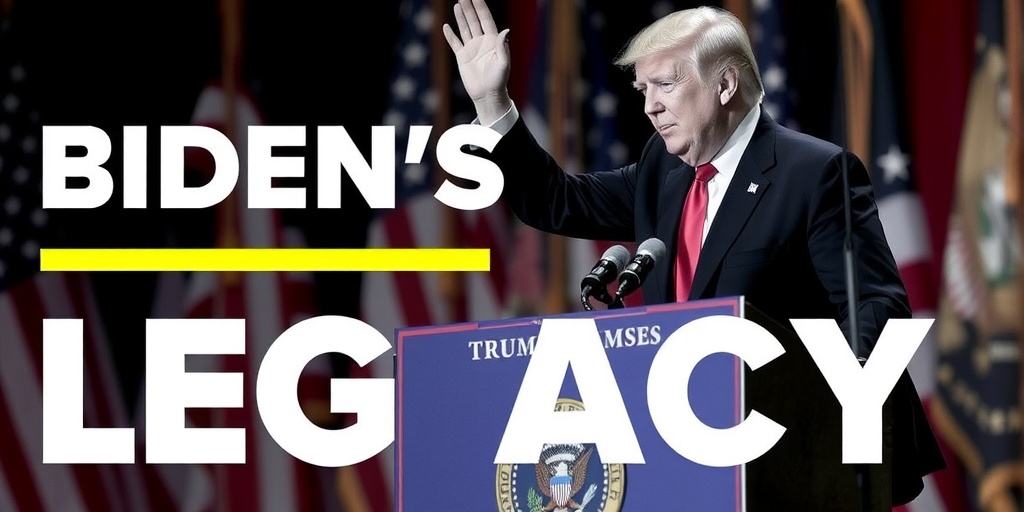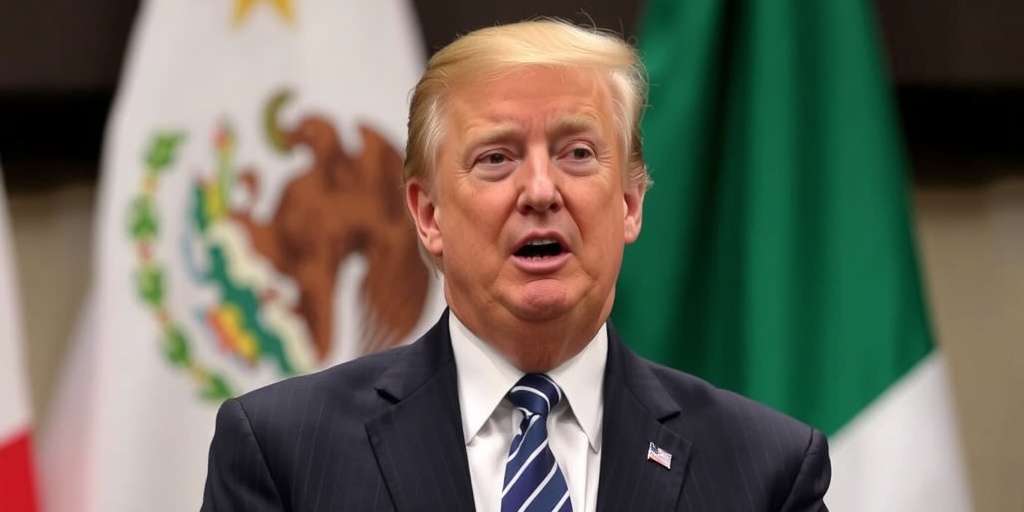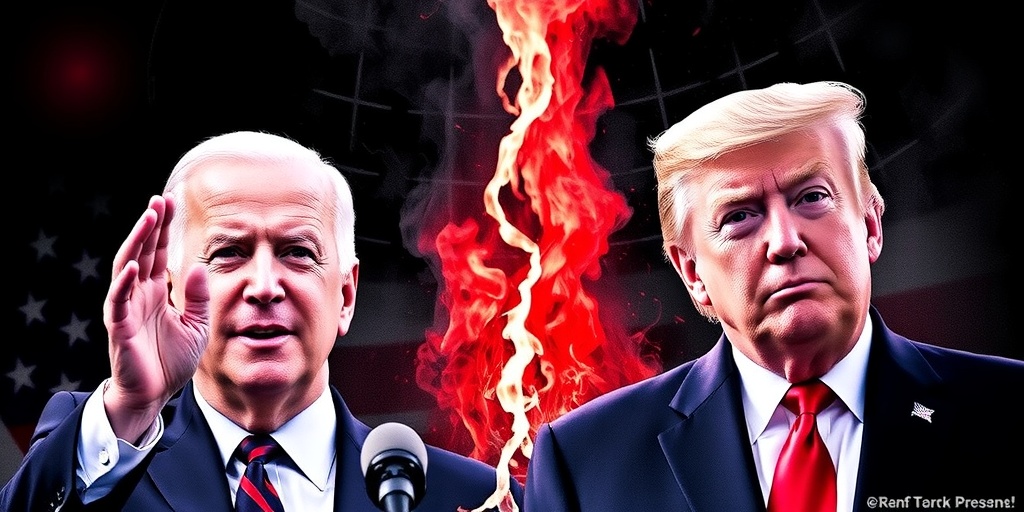Now Reading: Biden’s Legacy: A Transformative Era Shaped by Trump
-
01
Biden’s Legacy: A Transformative Era Shaped by Trump
Biden’s Legacy: A Transformative Era Shaped by Trump

Biden’s Presidential Legacy: A Mixed Record of Achievements and Challenges
As President Joe Biden prepares to leave office after four tumultuous years, his legacy is being debated and defined. While he has a list of significant accomplishments, he also grapples with pressing issues like inflation, immigration, and concerns about his age. Biden’s presidency was marked by a series of pivotal events that have left an indelible mark on the American political landscape.
At the onset of his presidency, Biden confronted the unprecedented crisis of the COVID-19 pandemic, which had already claimed hundreds of thousands of American lives. He quickly implemented measures aimed at accelerating vaccine distribution and reopening the economy. By the end of his first year in office, over 250 million vaccine doses had been administered, leading to dramatic decreases in COVID-19 cases and deaths. The economic recovery initiated during his tenure saw unemployment rates fall significantly, with millions of jobs recovered as the country emerged from the grips of lockdown.
However, the aftermath of the pandemic has not been without its challenges. The resurgence of inflation, driven by supply chain disruptions and global events like Russia’s invasion of Ukraine, plagued Biden’s presidency. Inflation reached a staggering peak of 9.1% in the summer of 2022, affecting the cost of gas, groceries, and housing. Many Americans reported feeling financially strained, leading to declining approval ratings for the president.
Biden’s impact on international affairs and national security is also noteworthy. His administration faced the daunting task of withdrawing U.S. troops from Afghanistan, marking the end of America’s longest war. The chaotic withdrawal process drew sharp criticism, particularly after the Taliban quickly regained control. Images of desperate Afghans attempting to flee from impending danger sparked national outrage and embarrassment. However, his administration successfully executed targeted operations, including the drone strike that killed Al Qaeda leader Ayman al-Zawahiri.
On the diplomatic front, Biden emerged as a strong ally to Ukraine in its fight against Russian aggression. Following Russia’s full-scale invasion in 2022, Biden rallied NATO allies and approved substantial military and humanitarian aid to Ukraine, striving to maintain regional stability in Europe. His administration’s support helped Ukraine push back against Russian advancements and galvanized international cooperation against authoritarianism.
Despite these foreign policy achievements, Biden’s presidency has been embroiled in controversy and division, particularly regarding immigration. In an effort to reverse the restrictive immigration policies of the Trump administration, Biden’s approach inadvertently led to record levels of illegal crossings at the U.S.-Mexico border. Although he sought bipartisan solutions to address the ensuing crisis, political gridlock hindered comprehensive reform. Republican opposition and a lack of coordination among Democrats hampered his initiatives on immigration.
Moreover, Biden’s focus on climate change has been another defining aspect of his presidency. From the moment he took office, he rejoined the Paris climate accord and initiated a series of ambitious climate policies. His administration authorized a historic investment of $370 billion to combat climate change, the most substantial commitment ever made by a U.S. president. However, the challenges of balancing energy production with conservation efforts created tensions with both environmental advocates and energy producers.
Biden’s handling of ongoing domestic matters, particularly social issues and civil rights, has also encountered scrutiny. While he successfully championed legislation aimed at addressing systemic inequalities, such as expanding healthcare access for veterans and capping insulin prices, the deep polarization within the country has hampered his ability to deliver a unifying message. Many Americans feel increasingly divided, as the political narrative often oscillates between notions of restorative justice and fears of authoritarianism.
In his farewell address, Biden expressed hopes that history would judge his presidency more kindly than the present climate of opinion. Despite delivering on many of his ambitious goals and policy initiatives, he recognizes that the evolving political landscape has created challenges that cannot be overlooked. As he hands over the Oval Office, his aim is to inspire future leaders to pursue progress while remaining vigilant about the threats to democracy that he believes are posed by figures such as Donald Trump.
Ultimately, Biden’s presidency will be evaluated against the backdrop of a tumultuous time in American politics. While he managed to navigate significant crises and push through substantial legislation, the challenges he faced—chief among them a divided electorate, economic uncertainty, and pressing global issues—will define how his tenure is remembered in history. The coming years will reveal whether his efforts have laid the groundwork for a more equitable and resilient America or simply served as an interregnum in a broader political narrative dominated by partisan strife.
Stay Informed With the Latest & Most Important News
Previous Post
Next Post
-
 01New technology breakthrough has everyone talking right now
01New technology breakthrough has everyone talking right now -
 02Unbelievable life hack everyone needs to try today
02Unbelievable life hack everyone needs to try today -
 03Fascinating discovery found buried deep beneath the ocean
03Fascinating discovery found buried deep beneath the ocean -
 04Man invents genius device that solves everyday problems
04Man invents genius device that solves everyday problems -
 05Shocking discovery that changes what we know forever
05Shocking discovery that changes what we know forever -
 06Internet goes wild over celebrity’s unexpected fashion choice
06Internet goes wild over celebrity’s unexpected fashion choice -
 07Rare animal sighting stuns scientists and wildlife lovers
07Rare animal sighting stuns scientists and wildlife lovers





















